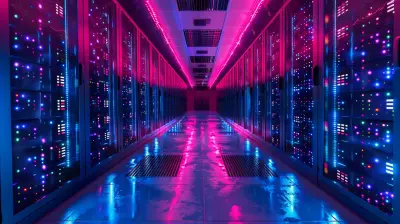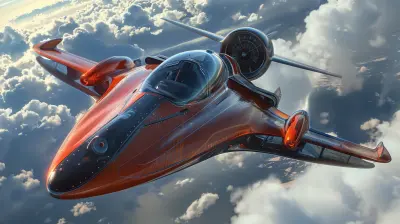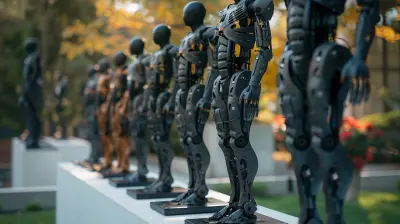The Role of AI in Enhancing IoT Capabilities
16 May 2025
The Internet of Things (IoT) has revolutionized the way we interact with devices, from smart home gadgets to industrial automation. But IoT alone isn't enough to unlock its full potential. Enter Artificial Intelligence (AI)—the game changer that takes IoT from being just "smart" to "intelligent."
AI supercharges IoT by enabling devices to analyze data, learn from patterns, and make real-time decisions without human intervention. This combo is transforming industries, slashing inefficiencies, and creating more responsive systems. But how exactly does AI enhance IoT capabilities? Let’s break it down! 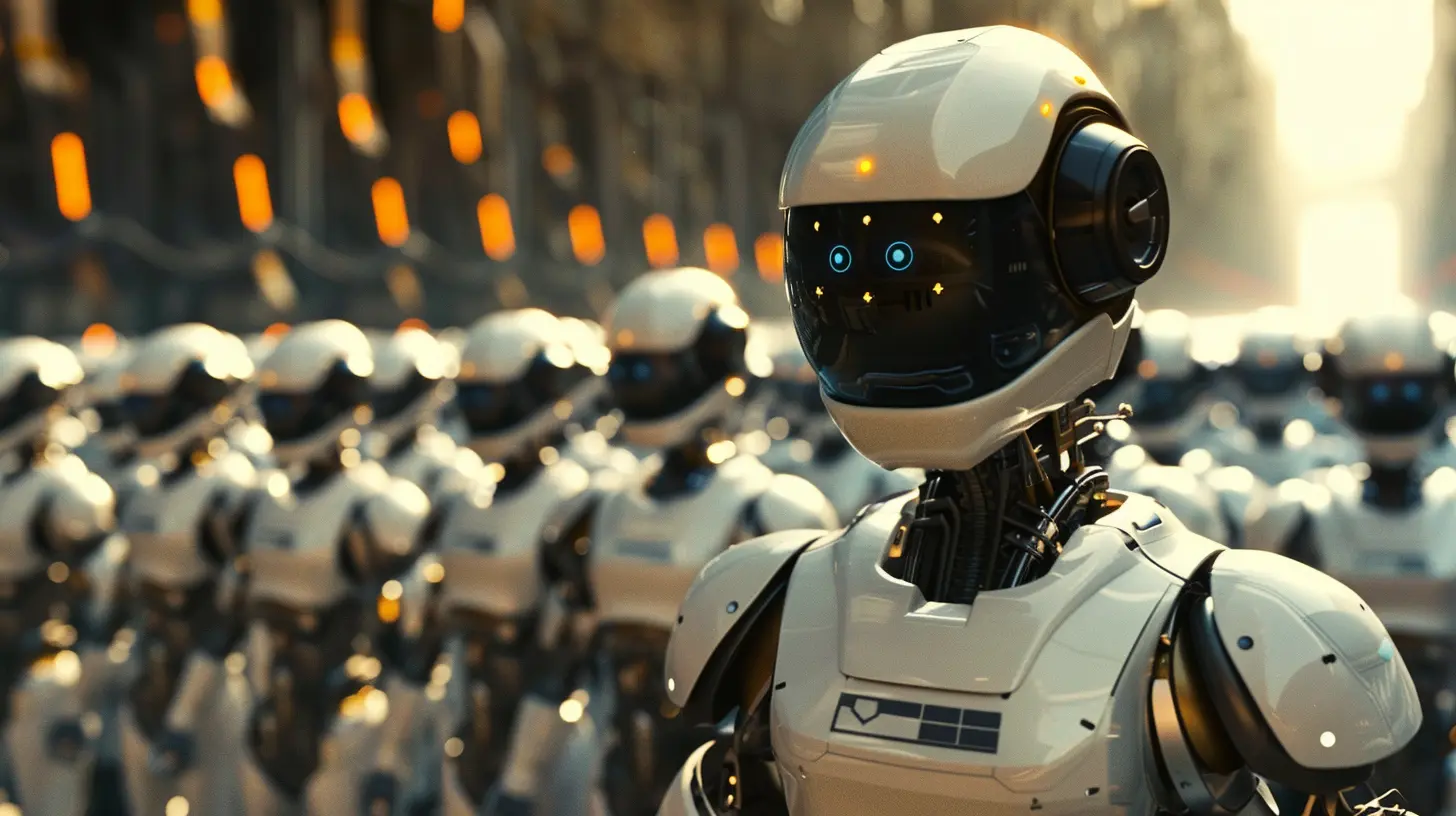
What is IoT and Why Does It Matter?
Before we dive into AI's role, let’s get a quick refresher on IoT.IoT refers to a network of interconnected devices that collect and share data. Think of your smart thermostat adjusting the temperature based on your habits or a fitness tracker monitoring your health stats. These devices gather a ton of data, but on their own, they have limited intelligence.
Without AI, IoT is like a library full of books but no librarian to organize or interpret the information. AI acts as that librarian, making sense of the data and turning it into actionable insights. 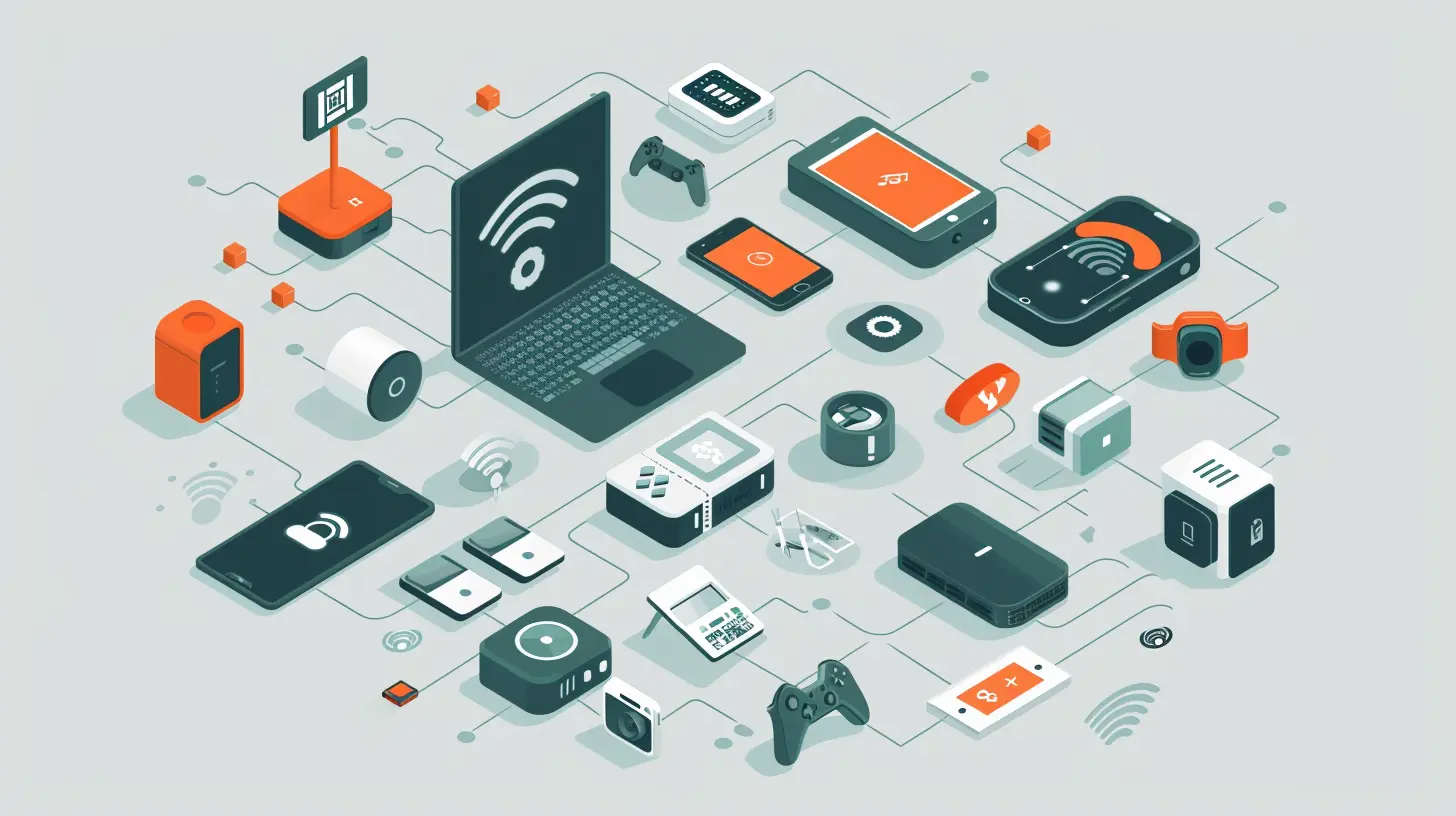
How AI Supercharges IoT
So, what happens when AI and IoT team up? You get a system that’s not just collecting data but actually understanding and acting on it. Here’s how AI enhances IoT capabilities:1. Real-Time Data Processing
IoT devices generate vast amounts of data. AI steps in to process it instantly, making real-time decisions possible.For example, in smart cities, AI-powered IoT traffic sensors can analyze congestion and adjust traffic signals dynamically to reduce jams. Without AI, data collection would be there, but the ability to "think and act" wouldn't.
2. Predictive Maintenance in Industries
One of the biggest advantages of AI in IoT is predictive maintenance. Industries have expensive machinery that, if it fails unexpectedly, can lead to massive losses.AI analyzes data from IoT sensors, spotting patterns that predict when a machine might break down. Instead of waiting for failure, companies can fix issues beforehand, saving time and money. Imagine your car telling you a part is about to fail before it actually does—this is exactly what AI does for industries!
3. Improved Security and Threat Detection
Cybersecurity is a massive concern with IoT devices. Hackers love to target them since many lack advanced security protocols. AI can bolster security by identifying unusual behavior in connected devices.For instance, AI can detect if a smart home device is making unexpected network requests—possibly indicating a cyberattack—and block unauthorized access before it causes damage.
4. Enhanced Personalization in Smart Homes
Imagine walking into your house, and it just knows what you need. AI-powered IoT devices learn user behaviors and preferences over time.- Your smart thermostat adjusts to your favorite temperature automatically.
- AI-powered lighting changes based on your routine.
- Smart speakers suggest music based on your past selections.
AI turns IoT devices from simple tools into intuitive assistants that adapt to your lifestyle.
5. Autonomous Decision-Making
AI enables IoT devices to make decisions without human input. This is particularly useful in sectors like healthcare and autonomous vehicles.Take self-driving cars, for example. They rely on IoT sensors to detect obstacles, traffic, and pedestrians. AI processes this data instantly, allowing the car to make split-second decisions—potentially preventing accidents.
Similarly, in healthcare, AI-powered IoT devices can detect abnormalities in a patient’s vitals and alert doctors before a crisis occurs. It’s like having a digital guardian angel keeping an eye on things 24/7. 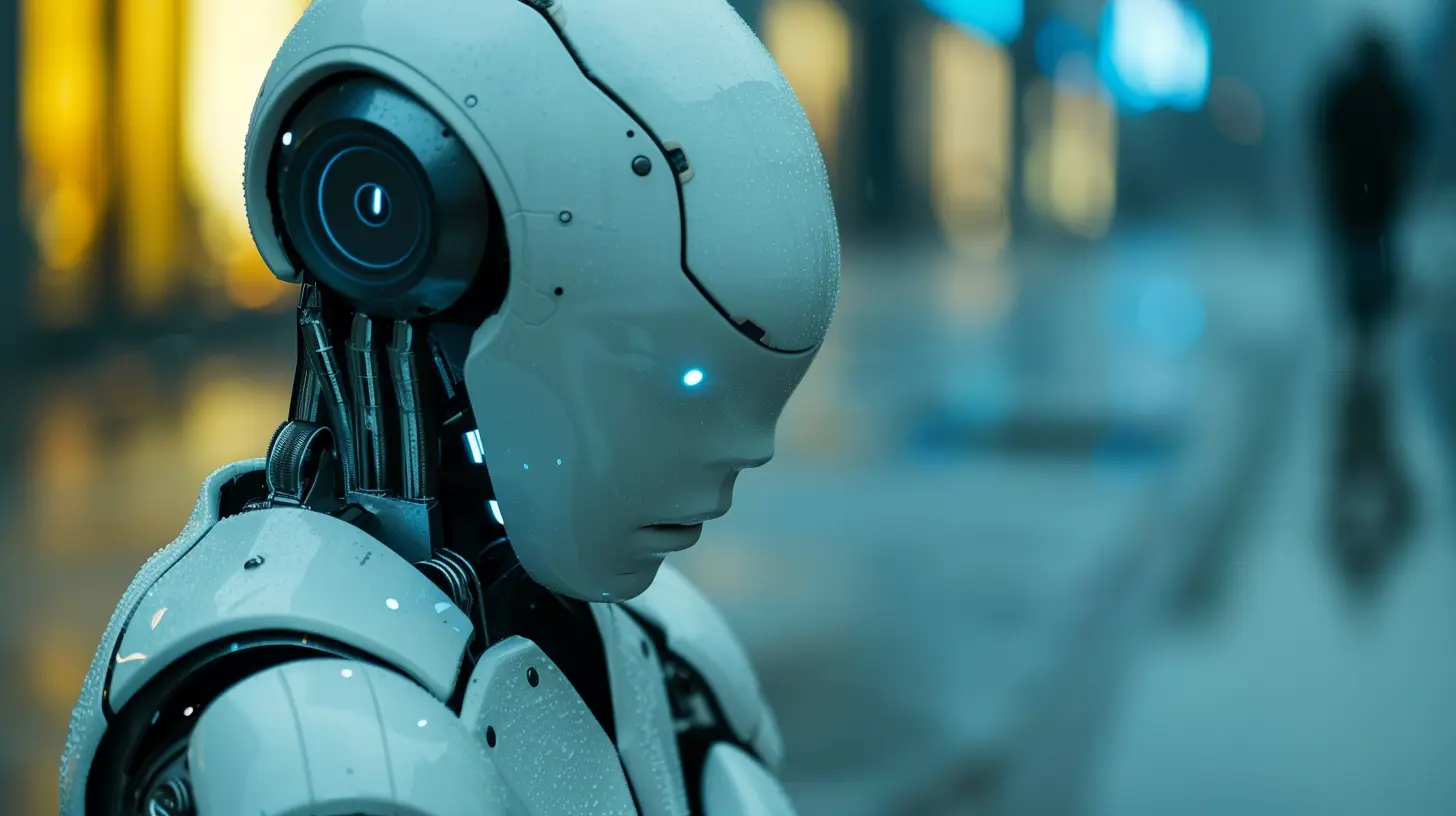
Key Industries Benefiting from AI-Driven IoT
While AI-powered IoT is making waves everywhere, some industries are experiencing massive transformations:1. Healthcare
- AI-driven wearables track vitals and detect health anomalies.- Smart hospitals use IoT to automate patient monitoring and resource management.
2. Manufacturing
- AI-powered robotics improve production efficiency.- Predictive maintenance prevents unexpected machinery failures.
3. Smart Cities
- Traffic management reduces congestion through real-time AI analysis.- Smart grids optimize energy distribution based on demand.
4. Agriculture
- IoT sensors with AI monitor soil moisture and weather patterns to optimize farming.- Automated drones assess crop health and suggest interventions.
5. Retail & E-commerce
- AI-powered IoT cameras analyze shopping behaviors to personalize offerings.- Smart inventory management predicts stock shortages before they happen.
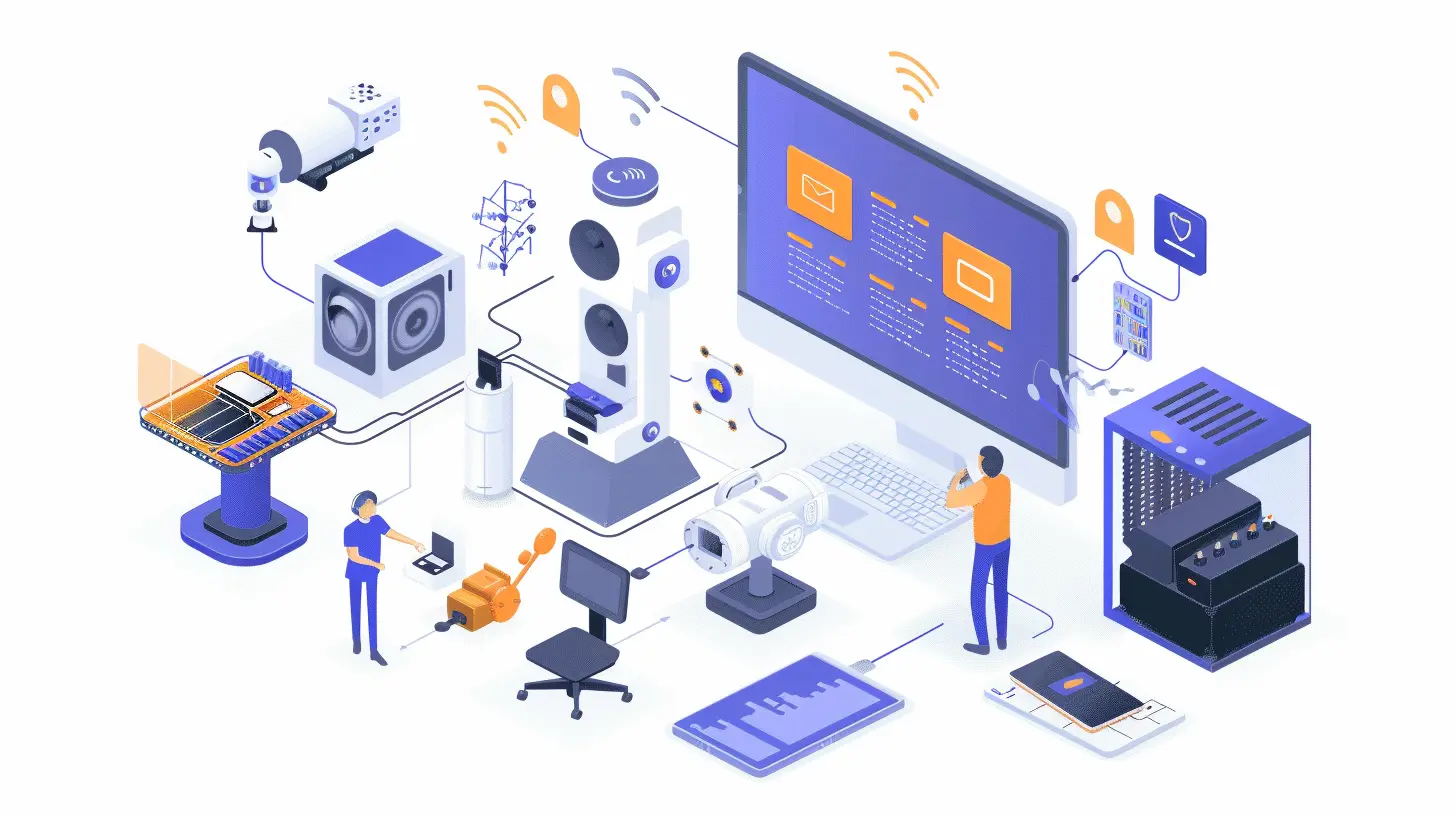
Challenges of Integrating AI into IoT
While the AI-IoT combo is revolutionary, it’s not without challenges.1. Data Privacy Issues
AI thrives on data, but collecting too much can raise privacy concerns. Striking a balance between personalization and user data protection is crucial.2. High Implementation Costs
Advanced AI-powered IoT systems require significant investment in infrastructure and skilled personnel. Not every business can afford the transition right away.3. Security Risks
AI can help with IoT security, but it’s also a double-edged sword. Cybercriminals can use AI to exploit vulnerabilities in IoT systems.4. Compatibility Issues
Many IoT devices operate on different platforms and standards, making AI integration complex. Ensuring seamless compatibility remains a challenge.The Future of AI in IoT
The AI-IoT duo is still evolving, and the future looks promising. Here’s what we can expect:- AI will become more autonomous, reducing reliance on cloud computing by processing data on edge devices.
- IoT devices will get even smarter, learning user behaviors faster and making more accurate predictions.
- Security will improve, as AI-powered cybersecurity systems become more advanced.
- AI-powered IoT will drive sustainability, optimizing energy consumption in homes, industries, and cities.
In short, AI is the missing puzzle piece that takes IoT from being just "connected" to being truly intelligent. As AI continues to evolve, IoT devices will become more adaptive, efficient, and reliable—reshaping how we live and work.
Final Thoughts
AI and IoT are like a power couple in the tech world—one collects the data, the other makes sense of it. Together, they’re revolutionizing industries, increasing efficiency, and providing smarter solutions to everyday problems.From self-healing machinery to personalized smart homes, AI-driven IoT is pushing boundaries like never before. As technology advances, we can only imagine what’s next—but one thing’s for sure: AI is the fuel that will propel IoT into the future.
all images in this post were generated using AI tools
Category:
Iot DevicesAuthor:

Vincent Hubbard
Discussion
rate this article
4 comments
Alexander Hunter
AI transforms IoT into smarter ecosystems.
May 21, 2025 at 10:27 AM

Vincent Hubbard
Absolutely! AI enhances IoT by enabling smarter data analysis, predictive insights, and automated decision-making, ultimately creating more efficient and responsive ecosystems.
Valeria Jenkins
This article brilliantly highlights how AI amplifies IoT potential by enabling smarter data processing, predictive analytics, and automation, ultimately driving efficiency and innovation across diverse industries. Essential read for tech enthusiasts!
May 20, 2025 at 1:18 PM

Vincent Hubbard
Thank you for your positive feedback! I'm glad you found the article insightful in highlighting AI's impact on IoT capabilities.
Myles Powell
AI significantly enhances IoT capabilities by enabling real-time data processing, predictive analytics, and automated decision-making, leading to improved efficiency, smarter operations, and transformative user experiences across industries.
May 18, 2025 at 8:58 PM

Vincent Hubbard
Thank you for your insights! AI indeed plays a crucial role in optimizing IoT through real-time analytics and automation, driving efficiency and innovation across various sectors.
Dylan Summers
Exciting times ahead! AI is truly revolutionizing IoT, making our devices smarter and our lives easier. Can't wait for more innovations!
May 16, 2025 at 7:22 PM

Vincent Hubbard
Thank you! Exciting innovations are indeed on the horizon as AI continues to elevate IoT capabilities. Stay tuned!

